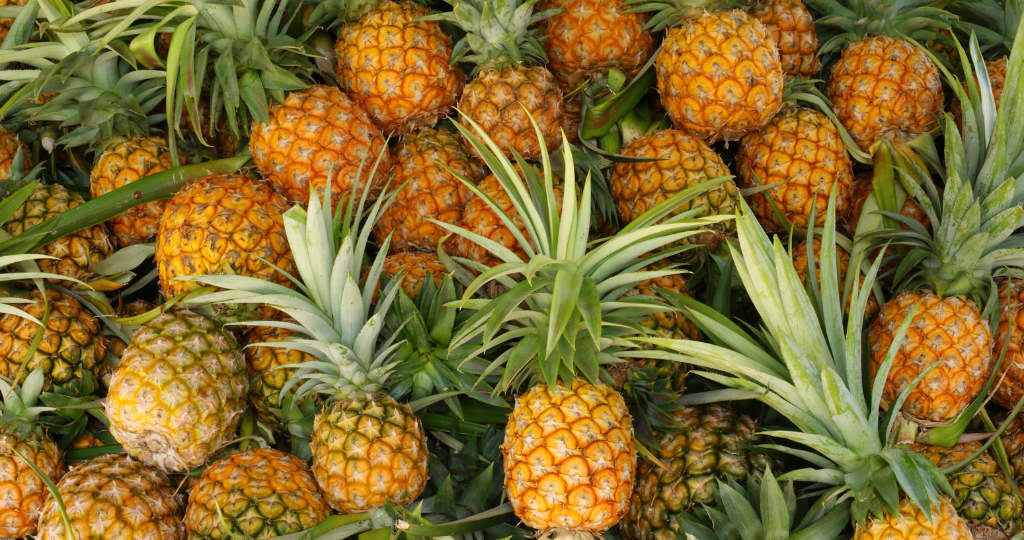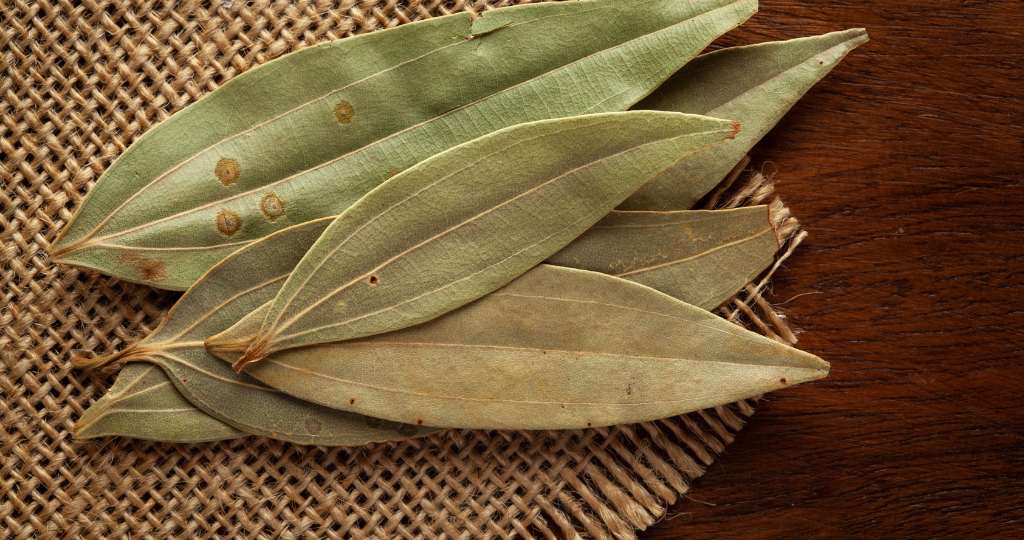
Ananas or Pineapple Complete Guide to the Ayurvedic Herb
- English name: Pineapple
- Hindi name: Ananas
- Latin name: Ananas comosus
- Sanskrit name: Bahunetra
Ananas or Pineapple is rich in nutrients and advantageous compounds like vitamin C, manganese, and enzymes, which contribute to aiding digestion. Consumption of pineapple can enhance immunity, reduce the risk of cancer, and expedite recovery after surgery. This versatile fruit is commonly enjoyed baked, grilled, freshly cut, or in the form of juice.
10+ Evidence Based Advantages of Ananas
Health Benefits
Ananas is enriched with goodness of several nutrients and several health benefits such as:
- Packed with a substantial amount of Vitamin C, Ananas fortifies the immune system.
- With a manganese content reaching up to 75% of the daily recommended intake, it lowers the risk of Macular degeneration.
- Abundant in dietary fiber, Ananas facilitates digestion and promotes the secretion of digestive enzymes.
- The Vitamin C content contributes to warding off colds and flu.
- Pineapple's anti-oxidants play a role in reducing inflammation.
- The combination of beta-carotene, bromelain, and Vitamin C collectively supports natural skincare.
- The presence of Copper, Zinc, and folate compounds enhances fertility.
- Optimal levels of Potassium help maintain healthy blood pressure.

Source: Canva
Ananas For Boosting Immunity
Ananas is high in vitamin C, enzymes, fibre, and anti-oxidants, all of which aid in the correct functioning of the body. Furthermore, the presence of vitamin C aids in the prevention of cell damage as well as joint discomfort and coronary disease.
Ananas Contains Anti-Oxidants
Pineapples are high in nutrients, but they also contain anti-oxidants, which assist your body fight oxidative stress. An accumulation of free radicals, unstable chemicals that cause cell damage, causes oxidative stress, which is typically connected to chronic inflammation, impaired immunological function, heart disease, diabetes, and several malignancies.
Pineapples are high in anti-oxidants known as flavonoids and phenolic compounds. One study found that pineapple anti-oxidants may have heart-protective benefits. Furthermore, many of the anti-oxidants in pineapple are termed bound anti-oxidants, resulting in longer-lasting benefits.
Ananas Eases Digestive Issues
Pineapple is also proven to help with stomach disorders. Bromelain, an enzyme found in high concentrations in pineapple, aids in the breakdown of protein molecules into their constituent parts. This allows them to be absorbed more quickly across the small intestine, offering relief from indigestion. Eating Ananas is especially good for people who have pancreatic insufficiency, a disease in which the pancreas does not produce enough digestive enzymes. Aside from that, the fruit's high fibre and water content can help avoid constipation and keep the stomach lining healthy.
Ananas Treats Cold and Cough
If you have a bad cold, try integrating ananas advantages for cough and cold. This is due to the presence of bromelain, an enzyme with anti-inflammatory qualities that can fight infections and destroy germs. Eating it on a daily basis might help you avoid catching a cold or cough.
Ananas Promotes Healthy Hair

Source: Canva
As an anti-oxidant, the high vitamin C concentration can help alleviate hair thinning; vitamin C fights free radicals to prevent severe hair loss. The fruit's other vitamins and nutrients nourish the hair follicle while also strengthening and promoting hair growth.
Other Plants:
Ananas for Eye Health
Regular pineapple eating can lower your risk of macular degeneration, a condition that damages the eyes as you age. This healthful fruit, on the other hand, is abundant in vitamin C and anti-oxidants, which can help with vision.
Ananas for Brighter Skin
Pineapple has an enzyme that is often utilised in beauty products and treatments. Bromelain is a protein that dissolves in nature and disrupts the link between obstinate dead skin cells. Its humectant characteristic helps to retain moisture without removing your skin's natural oils. Similarly, pineapple will assist you in improving your skin's radiance and removing sun tan. The outcomes will astound you. Using this pack on a regular basis will result in softer, clean, moisturised, and brighter skin.
Nutritional Facts of Ananas
Pineapples are not only low in calories but also packed with nutrients. In addition to this, pineapples also provide trace amounts of vitamins K and A, zinc, calcium, and phosphorus. Just one cup (165 grams) of pineapple chunks contains the following essential nutrients:
|
Nutrients |
Amount in 165 grams |
% daily value |
|
Calories |
82.5 kcal |
|
|
Fat |
0.198 grams (g) |
|
|
Protein |
0.891 g |
|
|
Carbs |
21.6 g |
|
|
Fiber |
2.31 g |
|
|
Vitamin C |
78.9 milligrams (mg) |
88% |
|
Manganese |
1.53 mg for women and 2.3 mg for men |
109% for women and 66% for men |
|
Vitamin B6 |
0.185 mg |
11% |
|
Copper |
0.181 mg |
20% |
|
Thiamine |
0.13 mg |
11% |
|
Folate |
29.7 micrograms (mcg) |
7% |
|
Potassium |
180 mg |
4% |
|
Magnesium |
19.8 mg |
5% |
|
Niacin |
0.825 mg |
5% |
|
Pantothenic acid |
0.351 mg |
7% |
|
Riboflavin |
0.053 mg |
4% |
|
Iron |
0.478 mg |
3% |
How Does Ananas Work for Various Health Issues?
Ananas, often known as pineapple, has several health advantages. It improves digestion, decreases inflammation, and may help with respiratory difficulties because it is high in bromelain. The high vitamin C concentration promotes immunity, which aids in the prevention of colds and flu.
The anti-oxidants in pineapple help to reduce inflammation overall. Manganese promotes eye health, while the potassium content of the apple assists with blood pressure regulation. Furthermore, the combination of bromelain, vitamin C, and beta-carotene promotes skin health. Integrating pineapple into one's diet can help with a variety of health issues and improve general well-being.
Other Plants:
Ways To Use Ananas

Source: Canva
You can incorporate the goodness of Ananas in the following ways:
- Pineapple facial scrub for brighter skin
- Curd and pineapple mask for boosting hair growth
- Pineapple smoothie/juice
- Freshly cut pineapple
- Take supplements infused with Ananas
Ananas Facts & Myths
Here are some facts and myths about Ananas that you should know about:
3 Facts about Ananas
- Ananas skin is used for making animal food, alcohol, and vinegar.
- Like other ayurvedic plants, Pineapple plants are bromeliads that yield a single fruit and can take up to two years to mature fully.
- This fruit traces its origin to South America.
3 Myths about Ananas
- Pineapple causes miscarriage
- Ananas skin is poisonous
- Storing pineapple at room temperature will ripen it faster
Growing Ananas Plant at Home
To cultivate Ananas (pineapple) at home, start with a ripe pineapple, take off the crown, and dry it for a day. Plant the crown in well-draining soil, water it frequently, and expose it to sunlight. Pineapples grow well in warm areas. The plant takes roughly 18-24 months to yield fruit.
Where to Buy Ananas Based Products
Herbal products available at Zanducare are some of the best to lead a holistic life. All its products are infused with the goodness of Ayurvedic ingredients with no side effects.
Conclusion
Considering the numerous advantages derived from pineapple, it is entirely logical to integrate the healthful attributes of this tropical fruit into your wellness routine.
FAQs
1. What happens when you consume too much Ananas?
Overall, consuming Ananas is good for health. But when consumed in excess, it can lead to diarrhoea, skin rashes, nausea, excess menstrual flow, etc.
2. Is it safe to eat Ananas on an empty stomach?
Pineapple aids in proper digestion, but when consumed on an empty stomach, it can cause acidity.
3. Does pineapple aid in weight loss?
Since pineapple is rich in fiber, low in calories, and contains bromelain enzyme, it boosts metabolism while aiding in weight loss.
4. Is it safe for pregnant women to eat pineapple?
Due to the presence of the enzyme bromelain, consuming pineapple during pregnancy may cause certain side effects. It is recommended that you consult the doctor for the best advice.
5. Can Ananas be safe for kidney patients?
Yes, Ananas is low in sodium and contains essential nutrients that can be good for kidney patients.




